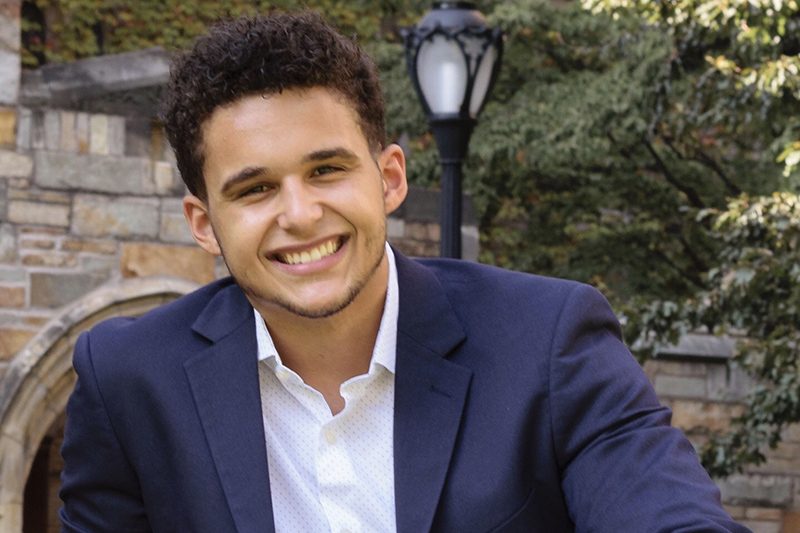Christian E. Olivier is a Global Health Scholar.
I came to Yale in the fall of 2016 with a passion for change, and was met with a community who had exceeded that passion. I was awestruck at the voice and the presence that Yale students were granted. From YPU debates, political rallies, and quite honestly, popular Facebook pages such as Overheard at Yale and Yale Memes for Special Snowflake Teens, Yale students seemed to live their lives behind a microphone.
I embraced this culture from day one. I loved involving myself in political debates with my peers, even if it was more listening than speaking. I was enamored by writing and took a position as the Executive Director of the Yale Logos, a journal of Christian thought. I became ferociously involved with Chi Alpha, a Christian fellowship on campus who believes wholeheartedly in storytelling and letting our voices be heard. The idea that someone was hearing me and engaging with what I was saying was so normal to me, and I could not imagine living a life where my voice was stifled.
I applied for Global Health Scholars because I recognized the privilege that I have. I recognized that being heard was not universal. As I thought about my decision to apply, the same popular question kept ringing in my head: if a tree falls in a forest with no one there, does it make a sound at all? How many trees are falling every time that we take a breath? How many voices are crying out for help every time we stand behind the microphone with an audience at attention?
What can be done about it?
The community that surrounds Global Health Scholars visibly wrestles with these questions everyday. It is overseen by faculty who are dedicated to hands-on intervention and who never take refuge in the ivory tower of academia. It is also comprised of students who have a heart for service, the dedication to change the world, and the determination to roll their sleeves up for the sake of health equity. Their excitement about the program was evident at every info session. In these sessions, course requirements and workload found themselves in the footnotes, as field experience took the main stage.
Some examples of field experience projects done by Global Health Scholars include health disparities among Syrian Refugees, access to HPV screenings in Nicaragua, and uptake of PrEP in Malaysian Sex Workers. In speaking with any of the current Global Health Scholars, I never heard sentences like “it was such a great experience for me.” The conversations revolved around who benefitted from the work and was devoid of self-gratification. What also interested me about this particular community is that the faculty and directors of the program looked at the students presenting as if they were their own children. It was evident that this was a community who supported each other like family, and were likeminded in their pursuits. It was a community that, after submitting my application, I prayed every night to be a part of.
Upon my acceptance in the beginning of January in 2018, I joyfully and excitedly took laps around my house, obnoxiously sporting the email as if I had won a Gold Medal at the Olympics. All of Louisiana could hear me pounding on my chest and singing low quality pop covers. My dog Eli has not forgiven me for using him as my dance partner, and my windows still have cracks in them from my awful singing numbers. I was not excited about adding another line to my resume, or taking cool courses, or hob-nobbing with respected faculty. I was excited because I was now a part of a community of people willing to give a voice to those who have been on mute for so long.
